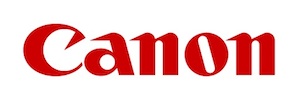Cary Sherburne: Hi, I’m Cary Sherburne, Senior Editor at WhatTheyThink.com. I’m here with Oscar Dubbeldam from the Netherlands, Strategy Partners. Welcome.
Oscar Dubbeldam: Yes. Thank you Cary.
Cary Sherburne: So, we’ve been talking a little bit about some of the differences between how business is conducted in the U.S. versus in Europe. And maybe you can talk a little bit about the postal systems. Ours is struggling for a lot of reasons.
Oscar Dubbeldam: Yes.
Cary Sherburne: But I hear great stories about the different postal services in Europe that are much more modern and able to deal with things. Maybe you can talk a little bit about that.
Oscar Dubbeldam: Yep. So yes, postal services are also struggling quite heavily from a traditional perspective in all European countries, although most European postal offices try to do something new. One of the new things which most of the postal offices are trying to do is to try to create some sort of a secure email postal delivery system. So what you have in America, called Zoom Books…
Cary Sherburne: Yeah.
Oscar Dubbeldam: So that’s done by Deutsch Post, T&T Post, Royal Mail in England, so all of those providers are looking for alternatives to create, say well, just send us your mail. If it can be sent by email, well, we’ll deliver by paper, we handle all the things. Of course that generates for them, a lot of… still a lot of traffic and transfer, but postal rates are so high that everybody’s looking for alternatives.
Cary Sherburne: Now I think you told me earlier that 85 percent of the cost of the envelope is on the stamp that’s on there.
Oscar Dubbeldam: Yep, so we did see some research in the last year, what is the cost element of paper and toner and ink and persons and even creative part of a document? And still, 85 percent of an envelope, an average envelope, goes to the stamp. So that’s a very obvious part to say, well, if you can scrap that, we have an enormous saving.
Cary Sherburne: And what about regulatory requirements that things have to be in printed form?
Oscar Dubbeldam: In some countries there is still the rule that contractual documents need to be sent on paper, but in more and more countries, in the Netherlands area, so Netherlands, Belgium, Luxemburg and France, a little bit also in the UK, we have now legislation where as I say, if contractual document is sent through a rerouting and gets a digital signature, it is valid. And you don’t even have to recognize anymore that the receiver of the document opens the document, just if you send it to the email address and you get a reply from the email provider, yes it is delivered, it’s fine. And that will make a big change in the next coming months in Europe.
Cary Sherburne: That’s interesting because I think here, they have to actually open it and if they don’t open it, then they have to send a hardcopy just by default.
Oscar Dubbeldam: Yes, we have that also in proposal form a year-and-a-half ago, due to a, let’s say, a major lobby, that’s gone. And so just sending it to the email provider, the server, is enough to get a still legal and contractual bound. Yes you have received and you cannot say, no.
Cary Sherburne: So that’s great. We should be looking towards Europe to help us solve some of the issues we have here.
Oscar Dubbeldam: Pleasure to do so.
Cary Sherburne: All right, thank you.

 Official camera partner of WhatTheyThink and the drupa daily.
Official camera partner of WhatTheyThink and the drupa daily. 












